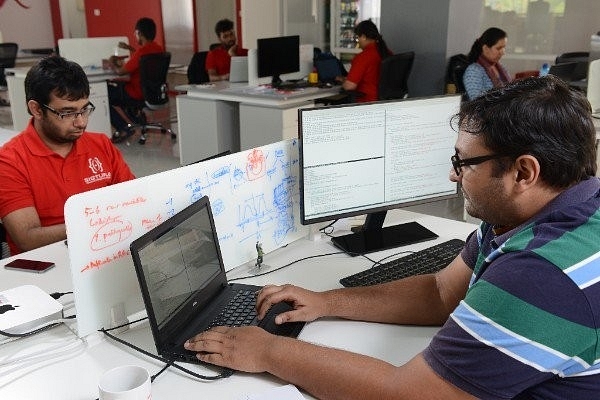Technology
Global Tech Layoffs: Time To Give Homegrown Start-Ups A Chance?
- In this period of tech layoffs, many Indian startups are actively seeking the services of displaced employees, as it saves them the time and effort to groom this lot of people.

A start-up office in Bengaluru. (Representative Image) (Hemant Mishra/Mint via Getty Images)
Over the last fortnight, several global technology corporations have announced downsizing – or in more polite terms – rightsizing of their global workforce.
While the impact is not as devastating as the great recession of the late 2000’s, the workforce in India is losing jobs, and the most common reason being given to them is fear of another recession.
The good news, however, is that the rightsizing is happening before a recession and is knocking at our doorstep, ensuring that the effect of the recession – if at all it really happens – is minimal. The workforce currently needs to make informed choices around their long-term career goals.
Hiring experts and Human Resources specialists feel that the real reason for the layoffs is the fact that the pandemic years saw almost nil hiring of new workforce.
Two years later, just as the pandemic started waning away, large corporations wanted to stay ahead of the curve, and in the process, ended up recruiting more people than necessary.
Today, with the industry stabilising and business climate normalising across the world, the same corporations are having to rationalize their ambitious over-hiring.
In a way, it is a sign of normalcy returning to the world of technology business, as an aftermath of lopsided business decisions.
While any such massive curtailment movement means displaced employees looking for jobs, India is in a far better place than the rest of the world.
The reason for this is the sheer number of start-ups that exist in this country, which operate with the sole aim of taking on global biggies with innovation and mindful investments.
The good news is that these start-ups are actively seeking the services of displaced employees, as it saves them the time and effort to groom this lot of people.
After all, if you have worked in a large corporation, it’s a reasonable belief that you come with knowledge of processes and job responsibilities. In other words, the sheer panache of working in an organizational structure. This is invaluable for a start-up.
Pradeep Gopi has been a seasoned HR professional who built a niche career of empowering Indian start-ups to find the right talent to meet their transformation goals. He is currently the Director of HR at Bidgely, an innovator in the Energy & Utilities market.
Speaking exclusively to Swarajya, he said, “At large companies, your role is limited to a small group within a larger group, to create one part of a solution, which will be plugged into a larger solution. In other words, your impact is minimal. In contrast, if you were to work in a start-up, you are actually getting your hands dirty on the actual solution, and your contribution and impact to business is massive. Of course, the more impactful you are to the company, the safer your job is.”
He goes on to say that it’s time for the Indian workforce to stop chasing big names and give innovative start-ups a chance.
A data science engineer who didn’t wish to be named moved recently from Atlanta to Hyderabad, after serving a large global supply chain company for three years.
He said, “I was pleasantly surprised at the maturity with which start-ups in India are creating innovative solutions in pretty much every area of the industry. They are often faster and see instant success, as compared to companies in the US that are constrained by having multiple decision makers. Indian start-ups follow flat organizational structures making seamless innovation a reality”.
It is a known fact that start-ups are by nature more transparent and open about their business to their employees. Every new customer, every new innovation is shared and celebrated, and every investment and funding is brought to the notice of every employee.
Anyone with basic common sense can understand where the company is heading.
Most start-ups in India are in their growth phase, and this means your jobs are safe for the next two years. Much better than being caught off guard in a large corporation that chooses to curtail five per cent of its workforce overnight, isn’t it?
Support Swarajya's 50 Ground Reports Project & Sponsor A Story
Every general election Swarajya does a 50 ground reports project.
Aimed only at serious readers and those who appreciate the nuances of political undercurrents, the project provides a sense of India's electoral landscape. As you know, these reports are produced after considerable investment of travel, time and effort on the ground.
This time too we've kicked off the project in style and have covered over 30 constituencies already. If you're someone who appreciates such work and have enjoyed our coverage please consider sponsoring a ground report for just Rs 2999 to Rs 19,999 - it goes a long way in helping us produce more quality reportage.
You can also back this project by becoming a subscriber for as little as Rs 999 - so do click on this links and choose a plan that suits you and back us.
Click below to contribute.
Latest